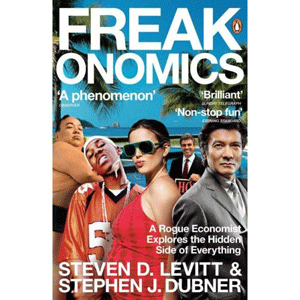I was on holiday at a bach up in Omaha for 4 nights, so I got a little more reading time in as someone insisted I leave the I Pod at home. So roughly one book a day and part way through next weeks book. Two non fiction and one fiction, I enjoyed one and tolerated the other two. Spoiler alert I left the best for last (even though I read it first).

I was disappointed in The Language of Things as it belied the purpose for which it looked to be intended. The sub title was "How we are seduced by the Objects around us" and it was not so much of that as it was a lecture on how bad that is. While there was a load of really good information in this on Design and Art as disciplines, the author had a serious passive agressive axe to grind on a load of different things in the world of design, consumer products and other items. So while I was reading the book to know more about how design of objects does in fact do this, a lot of the time the author was sermonizing and putting forth a very seriously one sided non-debate on the nature of commercial society and other evils.
And that's the problem with the book, set into 4 main parts: Design, Luxury, Fashion & Art - each one of them is not really the discussion the cover and/or title declares itself to be. The introduction feels like someone being very disappointed in you the reader, even as you are picking up and reading his book. Luxury is a socialist manifesto or perhaps a work of philosophy. Fashion is just downright catty and then begrudgingly respectful of the industry - which is at odds with almost everything he says in the book.
The chapter on Art is where the book finally makes sense. The author is the Director/Curator or whatever of the Design Museum, and in the discussion on Art he shows his true colours as having a love/hate relationship with Art Museums, New York's MoMA in particular.
All in all it was interesting enough, but was too much hard work and uncomfortable to read, not because of the way it exposed or pointed the finger, but in the constant disapproval from the author just being bloody irritatingly obvious.
One major quibble is that in the Art section he states the difference between Art and Design is that design is done to a spec or a brief or instructions that the designer then interprets. However even a cursory examination of Art denies this as true. The Mona Lisa, The Sistine Chapel, the Last Supper and lets say 90% of Renaissance Art all falls into the design description? I don't think so.
Let it go Deyan Sudjic, let it go.

A brilliant idea from Dave Zeltserman, but poorly executed. The concept being that four laid off software engineers all get together and plan/pull off a bank heist. Looked like a good idea. It was not a good read.
Many reasons, the characters first and foremost. Do stupid things. Are immensely dislikable. Cannot be trusted - obviously. Are all cardboard cutouts and just downright offensive. You like and identify with the main character right until the very end and then you are just left felling like you have wasted a day reading this. I didn't like any of the motivations, the dialogue and the relationships between these guys was ludicrous. I know and trust these people with my life and will go rob a bank with them? No way that anyone of sane mind would have even trused one of these guys with a trip to the shops to buy milk, let alone put a weapon in their hands and let them loose on a "fool proof" plan?
The sudden yet inevitable betrayal (Thank you Joss Whedon) and the suddenly shocking violence and silly reactions were just laughable. Except I wasn't laughing - I was annoyed. After reading Empty Mile (a Crime Noir done right) this was immensely disappointing - despite what could have been a great premise.

And finally a book I liked. Though as I have already read (Thanks Jon Stewart) and enjoyed the sequel, I could hardly be expected to think this was tripe. It's more disjointed than the sequel SuperFreakonomics, and you can see by the inclusion of the original Blogged material that this was a journeyman effort, and that they honed their craft much more craftily in the follow up volume.
Things I found interesting, the chapters on Parenting (TV makes no difference overall, loads of books in the house is a sign of education and affluence), Drug dealing is not the money maker that movies and TV make us think is and that you can't actually buy an Election (but money follows the likely winners).
Once again this is not a book or thought out hypothesis to prove/disprove so is disjointed in comparison to the layout and intent of the much better arranged book above (The Language of Things) but the structure is just secondary to the fact that this is just fun to read in pieces and will make you think twice when you look at things you think you know.













